Research, News & Discoveries
-
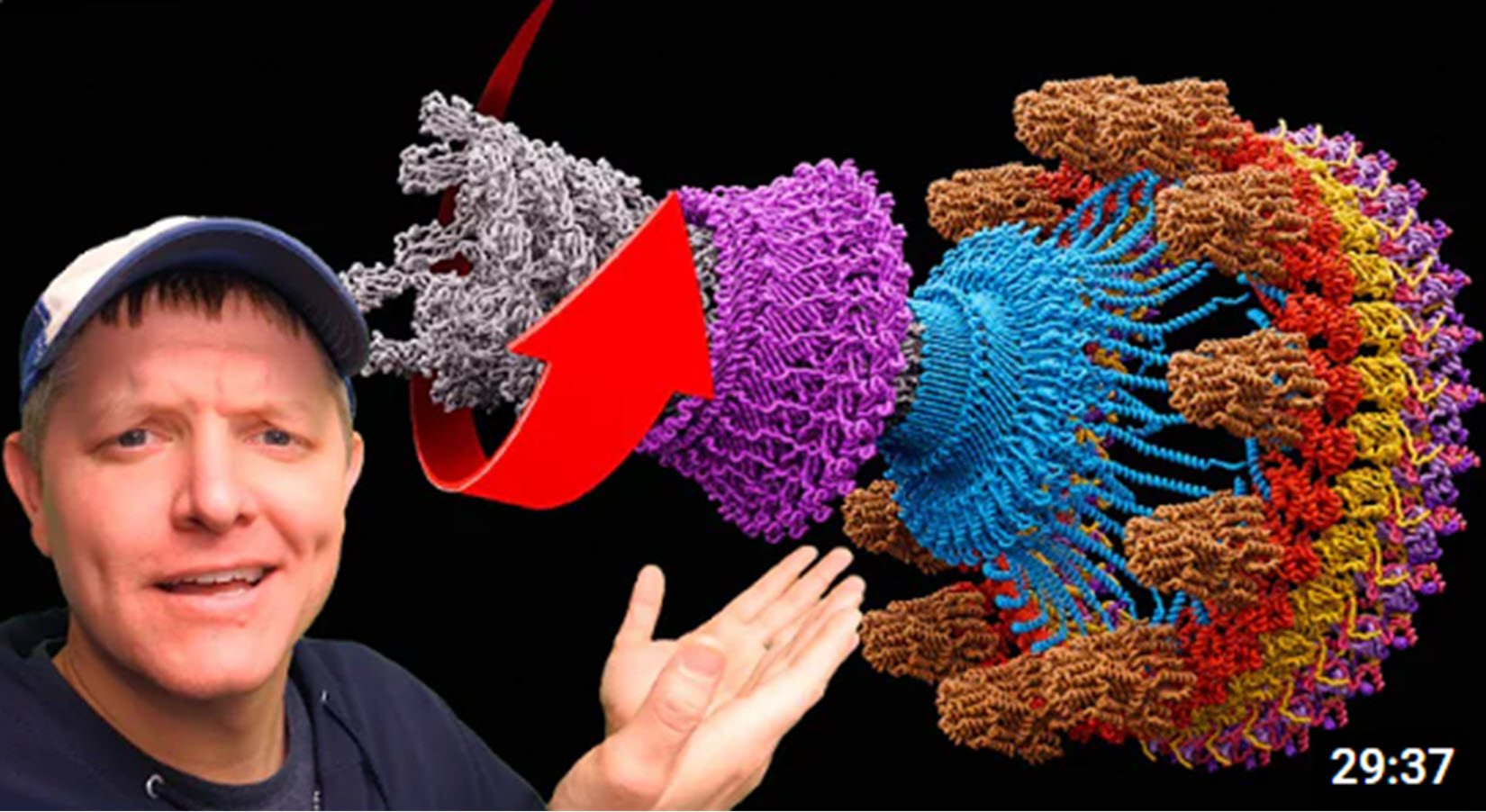
New structures offer insight into how a bacterial motor powers bacterial chemotaxis, a key-infectious-process
An international collaboration led by Professor of Pharmacology Tina Iverson was spotlighted by the popular YouTube channel Smarter Every Day. Iverson's work identified how bacteria move in response to their environment, a process essential for infection by pathogens. Read MoreApr. 17, 2024
-
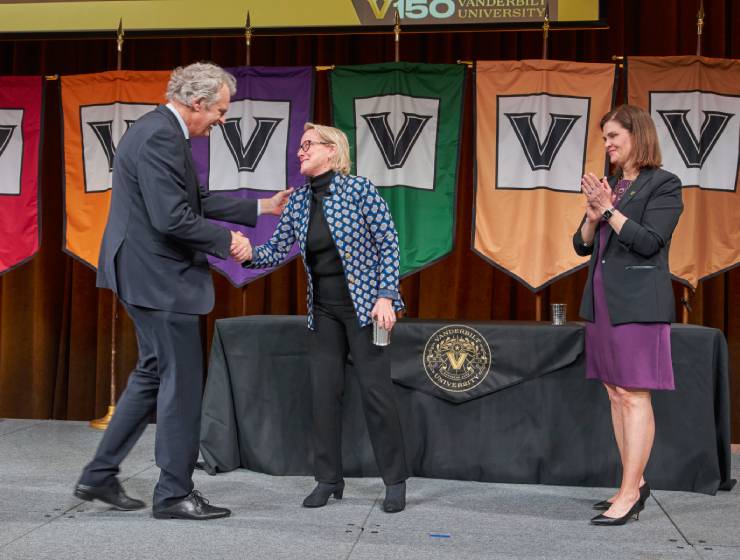
Carrie Jones wins Excellence in Undergraduate Research Mentoring Award at Spring Assembly
This year’s Excellence in Undergraduate Research Mentoring Award was awarded to Carrie Jones, associate professor of pharmacology, for her work understanding schizophrenia, Alzheimer’s disease and addiction and her willingness to support students in her lab. Read MoreApr. 15, 2024
-
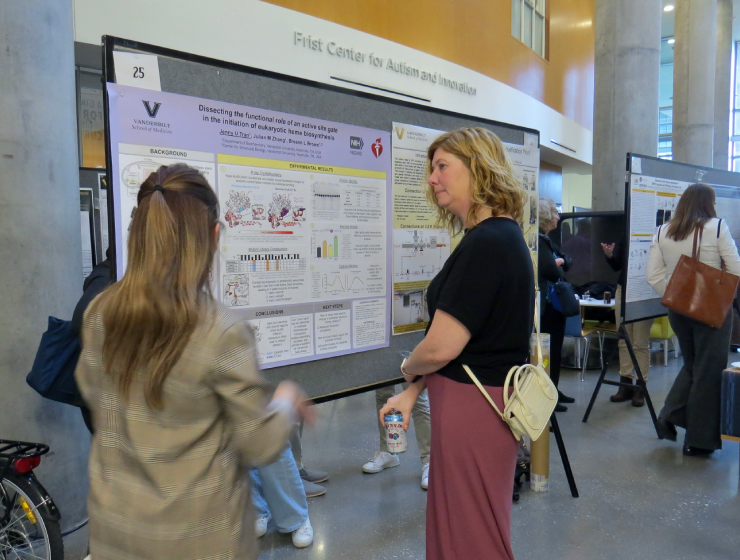
Vanderbilt researchers showcase cutting-edge structural biology at annual CSB Symposium
The 2024 Center for Structural Biology Symposium, which took place on March 28, celebrated its decades of success, research undertakings, and goal of strengthening the structural biology community at Vanderbilt. Read MoreApr. 15, 2024
-
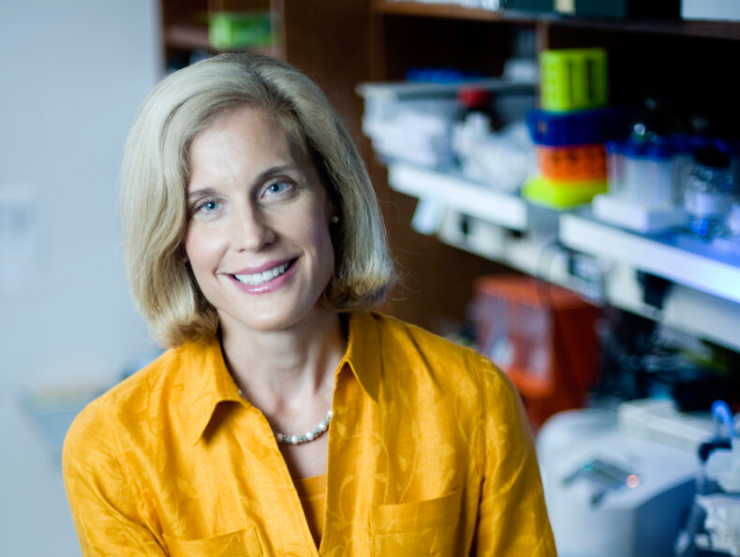
Pietenpol to receive American Society of Clinical Oncology’s highest honor
Jennifer Pietenpol, Executive Vice President for Research and chief scientific and strategy officer for VUMC and professor of biochemistry and otolaryngology, is the 2024 recipient of the Science of Oncology Award, for outstanding contributions to basic or translational research in cancer. She is among a select group of global oncology leaders being recognized with special awards by ASCO and Conquer Cancer, the organization’s foundation. Read MoreApr. 11, 2024
-
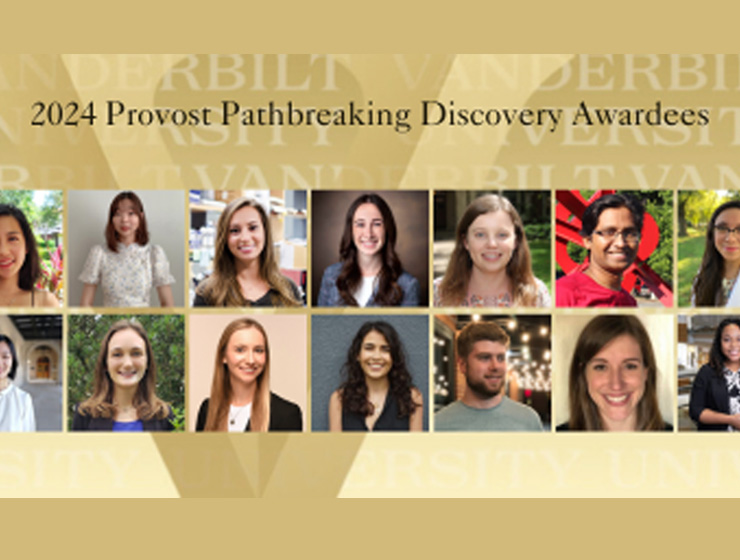
Fourteen biomedical sciences students receive 2024 Provost Pathbreaking Discovery Award
Fourteen biomedical sciences students from across the School of Medicine Basic Sciences and the School of Medicine have been awarded the Provost Pathbreaking Discovery Award from the Graduate School. Read MoreApr. 10, 2024
-

Celebrating recent appointments and promotions in the School of Medicine Basic Sciences
Congratulations to our School of Medicine Basic Sciences community members who were promoted or received new appointments from January to March 2024! These individuals significantly enrich our pursuit of pathbreaking research and contribute to the growth and success of our school. Read MoreApr. 4, 2024
-
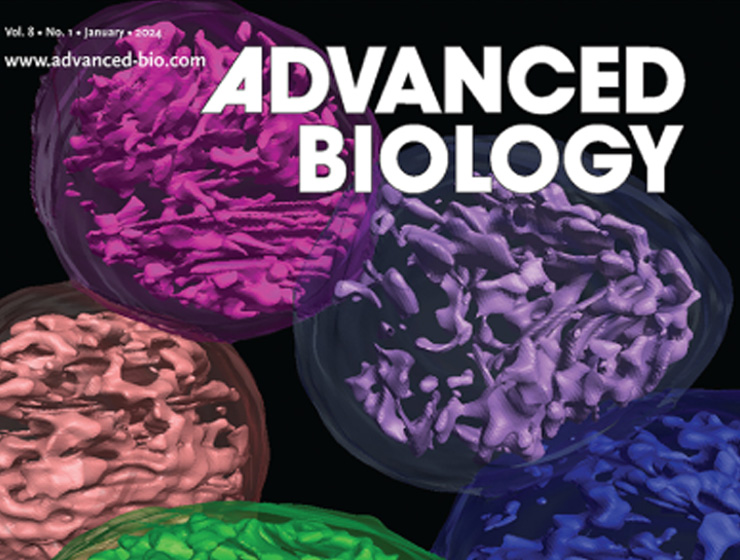
Hinton lab maps structure of mitochondria at different life stages
Antentor Hinton Jr. spearheaded a collaboration with labs from across Vanderbilt University, the U.S., and Brazil to create 3D maps of mitochondria inside brown adipose tissue, which may help researchers identify potential therapies to treat metabolic ailments. Read MoreApr. 4, 2024
-
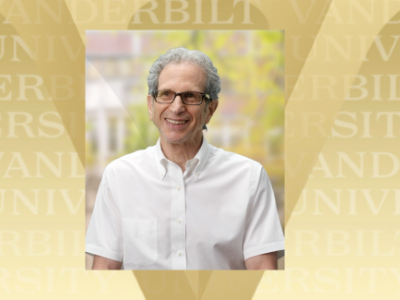
Chazin named senior associate dean of biomedical research education and training
Walter Chazin, Chancellor’s Chair in Medicine and professor of biochemistry and chemistry, has been named senior associate dean of biomedical research education and training. Kathleen Gould, Louise B. McGavock Chair, is stepping down from the role after 14 years with the BRET Office to return her focus to her research program in the department of cell and developmental biology. Read MoreMar. 28, 2024
-
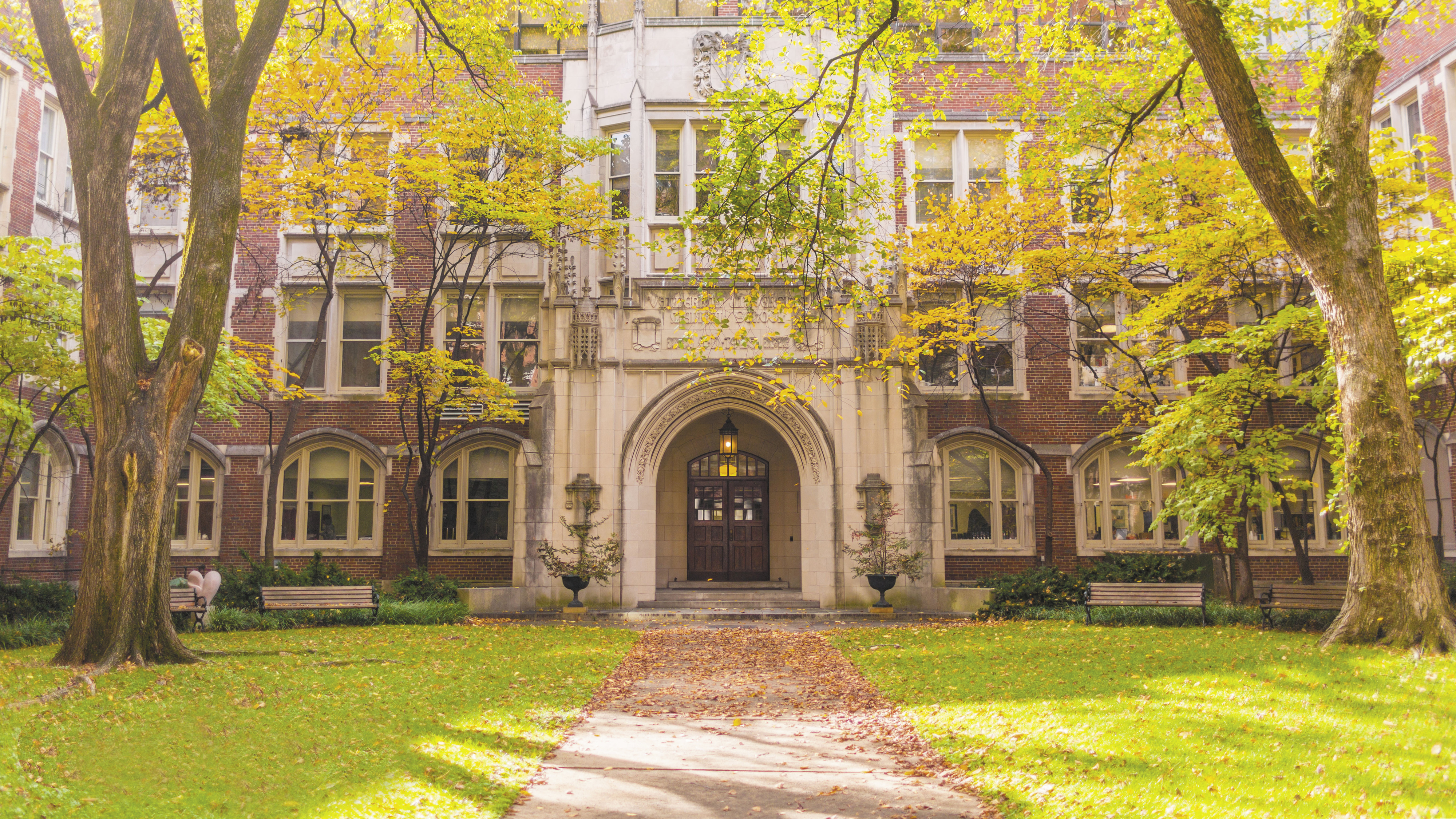
Sean Davies awarded Scaling Success grant to develop small molecules with promise of protecting against cardiometabolic disease
Davies received a Scaling Success grant to advance research on NAPE-PLD activators—potential key players in fighting cardiometabolic diseases. The team’s innovative research could lead to breakthrough treatments. Read MoreMar. 28, 2024
-

Teams to create one-stop resource for human pancreatic data to foster diabetes research
Leading investigators in diabetes, pancreas and islet biology, and computational biology have received $12.5 million in two five-year awards from the National Institutes of Health to create the world’s first, integrated knowledge base of human-derived tissue- and cellular-level pancreatic information to support innovative, collaborative and reproducible research. Read MoreMar. 28, 2024